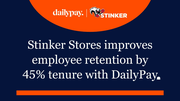News
Sports retailers embrace Microsoft Retail solutions
January 8, 2009
REDMOND, Wash. — Microsoft Corp. reported today that among its 305,000 Microsoft Dynamics customers worldwide, a growing percentage of professional sports organizations have solutions built on its enterprise resource planning, customer relationship management or retail management system technology. Adoption among groups of organizations with a common affiliation, such as those within a league or association, is currently as high as 78 percent. Microsoft Dynamics Retail Management System (RMS) is a popular choice for supporting retail operations within professional sports organizations, accounting for a portion of the 40,000 customers worldwide that Microsoft reports have adopted the solution. Its most recent version, Microsoft Dynamics RMS 2.0 is a complete point-of-sale (POS) solution that automates POS processes and store operations; provides centralized control for multi-store retailers; and integrates with Microsoft Office system programs, Microsoft Dynamics GP and other popular applications.
One recent purchaser of Microsoft Dynamics RMS is the merchandising unit of the Philadelphia Eagles. This unit manages all the retail operations for the Eagles, including the Eagles Pro Shop in Philadelphia and the Eagles End Zone outlet store in Lancaster, Pa., along with several dozen small stores set up at Lincoln Financial Field on game days and a retail store at the team's training camp at Lehigh University. The organization also runs an e-commerce business.
Previously, the Eagles' merchandising operation experienced problems with the scalability of reporting, flexibility and inaccuracies with its retail point-of-sale system.
"We were looking for a more efficient system to help continue to grow our business," said Brendan McQuillan, director of merchandising for the Eagles. "We needed a more robust solution."
The organization examined several retail systems, including Microsoft Dynamics RMS. The team's merchandisers chose the Microsoft Dynamics solution because of its capabilities and, according to McQuillan, "because we had confidence in the Microsoft brand."
Partnering with POSitive Technology, an expert in Microsoft Dynamics RMS, the Eagles implemented its new system with out-of-the-box functionality and met its tight three-month timeline to get it up and running by the first preseason football game. The organization integrated two tools into the RMS solution: Retail Analytics and Merchandise Planning (RAMP) software along with ConnectPRO to connect RMS directly into its existing Microsoft Dynamics GP technology for enterprise resource planning.
McQuillan anticipates that Microsoft Dynamics RMS will allow the organization to grow easily with new stores and wireless handheld registers.
Furthermore, he said, "It will let us better analyze our inventory on a timely basis especially during the high-volume time frame of game days. It will let us buy smarter and keep lower inventories while reacting to sales more quickly. We can see what's selling where and get products to those locations very quickly during game day."
McQuillan also is much more confident than before with the accuracy of the data he will be receiving and is looking forward to being able to generate any kind of report with ease.
"The implementation of Microsoft Dynamics RMS and its associated tools will allow us to continue to grow the Eagles' business as well as help the organization continue to be one of the leaders in merchandising for the NFL and the sports industry," McQuillan said.
Another sports retailer, MainGate Inc., has been using RMS for six years and in 2008 upgraded to Microsoft Dynamics RMS 2.0 to stay current with the latest retail technology. MainGate produces and sells merchandise at major spectator events in the United States and travels around the country, setting up remote sales sites at event locations. Among its clients is the Indianapolis Colts team, for which MainGate operates a pro shop and smaller kiosks around the city.
Before adopting Microsoft Dynamics RMS, the company stated it had been unhappy with its previous POS system from SouthWare Innovations Inc., which it found to be cumbersome and complex, requiring merchants to access four or five screens to make one sales transaction.
"Microsoft Dynamics RMS was user-friendly and provided a very quick turnaround in transactions," said David Schultz, POS administrator at MainGate.
POSitive Technology had been a longtime partner of MainGate and helped implement the 2.0 version of RMS. MainGate employees reported that the software was easy to learn, even without any training or an understanding of technology, a benefit that has allowed MainGate to reduce the time required to train new staff.
Schultz emphasized the importance of the Microsoft Dynamics RMS system's speed.
"With Microsoft Dynamics RMS, our transactions per minute went up and we were still providing excellent customer service," Schultz said. "We could get more customers through the line in the same amount of time."
Adapting Microsoft Dynamics RMS for locations around the nation has proved to be simple for MainGate. For example, Schultz noted, "to change the tax rate in Microsoft Dynamics RMS takes no time at all — five clicks of a mouse. And if we need to change a price, add an item or apply a discount, it's very simple for our managers to do."
Inventory reports are important to MainGate. With Microsoft Dynamics RMS, store managers run reports every night and can see if they are running low on inventory. The highly accurate inventory data lets the company keep the right amount of each product in its stores.
With Microsoft Dynamics RMS, MainGate can look at reports for specific days to determine how many staff members will be needed for registers and on the floor, and can forecast how much of a product will sell over a given time period.
One recent purchaser of Microsoft Dynamics RMS is the merchandising unit of the Philadelphia Eagles. This unit manages all the retail operations for the Eagles, including the Eagles Pro Shop in Philadelphia and the Eagles End Zone outlet store in Lancaster, Pa., along with several dozen small stores set up at Lincoln Financial Field on game days and a retail store at the team's training camp at Lehigh University. The organization also runs an e-commerce business.
Previously, the Eagles' merchandising operation experienced problems with the scalability of reporting, flexibility and inaccuracies with its retail point-of-sale system.
"We were looking for a more efficient system to help continue to grow our business," said Brendan McQuillan, director of merchandising for the Eagles. "We needed a more robust solution."
The organization examined several retail systems, including Microsoft Dynamics RMS. The team's merchandisers chose the Microsoft Dynamics solution because of its capabilities and, according to McQuillan, "because we had confidence in the Microsoft brand."
Partnering with POSitive Technology, an expert in Microsoft Dynamics RMS, the Eagles implemented its new system with out-of-the-box functionality and met its tight three-month timeline to get it up and running by the first preseason football game. The organization integrated two tools into the RMS solution: Retail Analytics and Merchandise Planning (RAMP) software along with ConnectPRO to connect RMS directly into its existing Microsoft Dynamics GP technology for enterprise resource planning.
McQuillan anticipates that Microsoft Dynamics RMS will allow the organization to grow easily with new stores and wireless handheld registers.
Furthermore, he said, "It will let us better analyze our inventory on a timely basis especially during the high-volume time frame of game days. It will let us buy smarter and keep lower inventories while reacting to sales more quickly. We can see what's selling where and get products to those locations very quickly during game day."
McQuillan also is much more confident than before with the accuracy of the data he will be receiving and is looking forward to being able to generate any kind of report with ease.
"The implementation of Microsoft Dynamics RMS and its associated tools will allow us to continue to grow the Eagles' business as well as help the organization continue to be one of the leaders in merchandising for the NFL and the sports industry," McQuillan said.
Another sports retailer, MainGate Inc., has been using RMS for six years and in 2008 upgraded to Microsoft Dynamics RMS 2.0 to stay current with the latest retail technology. MainGate produces and sells merchandise at major spectator events in the United States and travels around the country, setting up remote sales sites at event locations. Among its clients is the Indianapolis Colts team, for which MainGate operates a pro shop and smaller kiosks around the city.
Before adopting Microsoft Dynamics RMS, the company stated it had been unhappy with its previous POS system from SouthWare Innovations Inc., which it found to be cumbersome and complex, requiring merchants to access four or five screens to make one sales transaction.
"Microsoft Dynamics RMS was user-friendly and provided a very quick turnaround in transactions," said David Schultz, POS administrator at MainGate.
POSitive Technology had been a longtime partner of MainGate and helped implement the 2.0 version of RMS. MainGate employees reported that the software was easy to learn, even without any training or an understanding of technology, a benefit that has allowed MainGate to reduce the time required to train new staff.
Schultz emphasized the importance of the Microsoft Dynamics RMS system's speed.
"With Microsoft Dynamics RMS, our transactions per minute went up and we were still providing excellent customer service," Schultz said. "We could get more customers through the line in the same amount of time."
Adapting Microsoft Dynamics RMS for locations around the nation has proved to be simple for MainGate. For example, Schultz noted, "to change the tax rate in Microsoft Dynamics RMS takes no time at all — five clicks of a mouse. And if we need to change a price, add an item or apply a discount, it's very simple for our managers to do."
Inventory reports are important to MainGate. With Microsoft Dynamics RMS, store managers run reports every night and can see if they are running low on inventory. The highly accurate inventory data lets the company keep the right amount of each product in its stores.
With Microsoft Dynamics RMS, MainGate can look at reports for specific days to determine how many staff members will be needed for registers and on the floor, and can forecast how much of a product will sell over a given time period.
 ChatGPT
ChatGPT Grok
Grok Perplexity
Perplexity Claude
Claude




